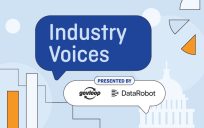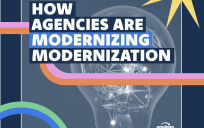With all the excitement and hype regarding generative AI (GenAI), government agencies are increasingly considering the technology to enhance their operations, streamline processes, and improve public service delivery. In addition to the well-known challenges of GenAI with respect to hallucinations, security, domain-specific language, explainability, and cost, agencies are wondering what skill sets they need to hire or develop to be successful with this emerging technology.

Do they need to hire new technical teams, which are likely very expensive? Do they hire consultants/vendors and, if so, can they trust them to do the work? Or, is there some way they can effectively leverage the technology with individuals similar to the ones they already have in place?
The short answer is that it is possible to harness existing personnel unless the agency tries to build the tools themselves, which, at face-value, might seem tempting. This is because integrating resources like vector databases, deployment frameworks, and generative AI is straightforward and provides good results, creating the illusion that the right solution is just around the corner.
Even if the initial setup may be 70% of the way there, it gives the false impression that if the agency just tries a little harder, it can deliver a workable system. But months of effort only result in incremental progress because the underlying issues of GenAI are quite involved and have not been broadly addressed by very many companies, including the ones that created the GenAI models in the first place.
In this new paradigm, answer engines supported by subject matter experts emerge as the only practical solution. These experts possess detailed knowledge about the intricacies of government functions, policies, and regulations. Answer engines remove the requirement for technical teams to conduct the initial setup and customization of AI systems. Instead, subject matter experts play a pivotal role in injecting the answer engine with the deep knowledge necessary for accurate and contextually relevant responses. Their ability to understand the nuances of government processes ensures that the AI system can navigate complex queries effectively. Better yet, no programming skills are required to enable these answer engines to work effectively.
It is important to note that the role content and knowledge management teams play becomes even more critical. These teams are responsible for curating, organizing, and updating the vast amounts of information that the AI system uses to extract information.
As the answer engine continually learns and adapts, content and knowledge management teams can also interact with the AI system to ensure that the information remains up-to-date, accurate, and aligned with the latest policies and regulations. Their role extends beyond the initial implementation phase, making the teams indispensable for the sustained success of generative AI and answer engines within government agencies.
The deployment of generative AI-enabled answer engines in agencies is reshaping the skill sets required from employees. While technical teams must assist with the initial integration into existing tools, the spotlight is now on subject matter experts, content and knowledge management teams. By recognizing the importance of these skill sets and investing in the expertise of existing staff, government agencies can successfully navigate the evolving landscape of AI technology, delivering improved services and better outcomes for the public.
Ryan Welsh is the founder and CEO of Kyndi, a global provider of the Kyndi Platform for the Natural-Language-Enabled Enterprise, an AI-powered platform that empowers people to do their most meaningful work. To learn more visit https://kyndi.com/ or follow them on LinkedIn and Twitter.





Leave a Reply
You must be logged in to post a comment.